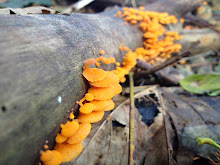Appeals court rejects sonar waiver for Navy
LOS ANGELES (Reuters) - A federal appeals court has rejected White House efforts to exempt the U.S. Navy from laws intended to protect endangered whales and other marine mammals by curbing the use of sonar off the California coast.
Future ”˜Battlegrounds’ for Habitat Conservation Very Different to Those in Past
Their study, published online February 28 in the journal Proceedings of the Royal Society B, provides a guide for conservationists of the areas of our planet where conservation investments would have the most impact in the future to limit extinctions and damage to ecosystems due to rapid human-driven climate and land-use change.
Dogs, Robots Compete for Human Attention
Dogs may have a hard time wrapping their paws around this one: Robotic competition is nipping at their heels in the man's-best-friend department. A study by Saint Louis University found that a lovable pooch named Sparky and a robotic dog, AIBO, were about equally effective at relieving the loneliness of nursing home residents and fostering attachments.
Despite fences, immigrants still broach U.S. border
Daily, U.S. Border Patrol agents in this Arizona town
faced groups of up to 200 illegal immigrants who would
swarm across the border from Mexico, sprinting past
the agents to a new life in the United States.
Gun that killed JFK assassin in pop culture auction
It is billed as the best pop culture collection ever
assembled -- ranging from the gun used to kill the
assassin of President John F. Kennedy to the Wicked
Witch of the West's hat from "The Wizard of Oz."
Nepal's 'living goddess' retires
A young girl worshipped in Nepal as a living goddess
has retired early from this ritual status.
Smokers'
brains recognize potential negative consequences but fail to act.
An investment game and functional magnetic resonance imaging (fMRI) to
test the precise effects of "what if" outcomes on decisions and brain
activity in smokers and non-smokers reveals that "The brain's might-
have-been signal in smokers is identical to nonsmokers, but the smokers
don't act on it," said Dr. Terry Lohrenz.
Arabia felix?
Yemen was long envied for its rainfall, terraced fields and irrigation channels. The Romans called it Arabia Felix, a name that mocks the unhappy modern reality of
water scarcity. Yemen relies on groundwater Wells and cisterns in villages like Beit Hujaira fill during short rainy seasons and gradually run dry as water is consumed or evaporates. "Then we die of thirst," a woman said.
Maya May Have Caused
Civilization-Ending Climate Change. The data suggest that the combination of slash-and-burn agriculture and conversion of the wetlands induced local drought and turned up the thermostat. And that could have fueled many of the suspected factors that led to the Maya decline—even seemingly unrelated issues like disease and war.
Fuori concorso:
Kit Houses from Sears Hold Their Value
It Arrived in an Awfully Big Kit
Urinal graffiti on a piss-wall

0 Comments:
Posta un commento
<< Home